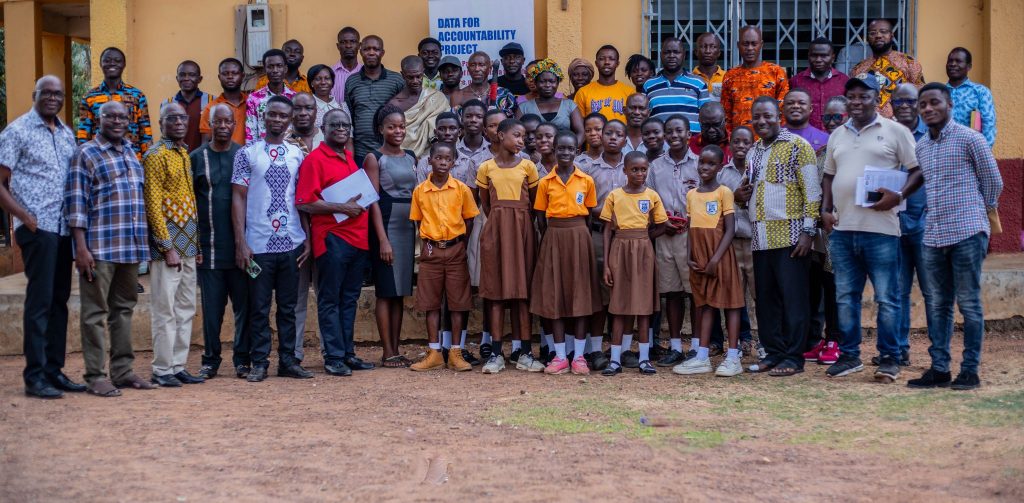The Fanteakwa North District was carved out of the East Akim District in 1988 by Legislative Instrument (L.I) 1411 of 1988 and the Local Government Act, Act 462 of 1993 with Begoro as the capital. In recent years, the literacy rate in the Fanteakwa North District has shown steady progress, particularly considering it is a farming community. A Citi News Room report indicates that, in 2015, less than five percent of children in all the basic schools in both Fanteakwa North and South districts could read with comprehension and write based on a survey by World Vision and the district directorates of education. Ghana has an estimated 11 million school-aged population, which is continually growing and indicates a significant need for quality education with a literacy rate of 69.8%, which is the second highest in Africa, with the regional average being 47% according to the 2021 United Nations Educational, Scientific and Cultural Organisation (UNESCO) report on Education.
Education is fundamental for the progress and development of every nation. With this in mind, the Data for Accountability Project (DAP) phase II, organized a four-day monitoring visit for the Education Committee of the Parliament of Ghana to Fanteakwa North District. The visit took place from March 24th to March 27th, 2024. The visit aimed to use the Community scorecard to assess service delivery in Education, following training for the Committee on the tool.
The Community Scorecard (CSC) and Its Importance
The Community Scorecard (CSC) is a social accountability monitoring and evaluation tool that uses participatory approaches in the monitoring and assessment of public service delivery particularly at the sub-national level. The CSC enhances participation, accountability, and transparency between service users (beneficiaries), providers of services, and decision-makers (duty-bearers). The overarching goal of the CSC is to influence the quality, efficiency, and accountability with which services are provided.
As an accountability tool, the CSC facilitates social and public accountability. By using the Community as a unit of analysis, the tool engenders community empowerment, provides space for citizens to engage duty-bearers, and strengthens citizens’ voices on issues that are important to their livelihoods. It also fosters collaboration between duty-bearers and citizens at the local level.
Importance of the CSC to MPs
As a participatory tool that can be used for monitoring service delivery and evaluation of the impact of government’s policies and programs, the CSC holds immense value to parliamentarians not least because it provides a platform for direct engagement with citizens which affords them quick feedback on issues of service delivery and government policies. It ensures that MPs can find out the quality of services being delivered, and in the process, be able to know whether there is value for money regarding the services being delivered. In essence, the CSC helps MPs to be more effective in their oversight and representative functions.
How CSC implementation improves service delivery
The scorecard methodology/approach allows citizens to determine key issues associated with the delivery of services of a particular facility or program. Being able to score or rank the extent to which the service provider is addressing these issues/indicators, makes it possible to know whether what is being delivered needs improvement or not. If for instance, it is determined that the services being delivered are sub-par during the assessment process, recommendations are made using the action plan matrix tool to highlight what needs to be done to improve identified service delivery.
Importance of Data in Education
For members of the Education Committee to make sound decisions on issues relating to education, they need data to inform their decision-making process; and this goes for the formulation of any policy or law. Data is the quintessential ingredient required by policymakers /decision-makers to examine different policy options before making a decision. Also, data allows educators, administrators, and policymakers to make informed decisions. By analyzing data, they can identify trends, strengths, and areas for improvement in the educational system, specifically in their various districts.
Again, another important aspect of data in education is it highlights disparities in education, such as achievement gaps between different student groups. This awareness is essential for developing targeted strategies to promote equity and inclusion in education across the country.
Key Findings in Fanteakwa North
Using focus group discussions (comprising pupils, parents, teachers, and opinion leaders) in the Ahommanhommso community, the Committee was able to unearth issues that were important to the Community when it comes to education service delivery including the provision of WASH facilities; issues related to motivation and retention of teachers e.g. TLMs, accommodation, etc.; and school infrastructure including computer labs and furniture. The Committee Members also led a joint action planning effort where community members together with duty bearers at the district level, identified key actions to be carried out towards improving service delivery. Additionally, the Committee on Education will be following up on policy-related issues that need to be addressed at the national level.
Conclusion
Deploying the CSC in Fanteakwa North was an exercise that not only unearthed successes and challenges in education service delivery in the district but also, fostered interaction among key stakeholders and highlighted key actions needed to improve education outcomes. As the district assembly takes on the task of addressing these challenges, there is a sense of optimism within the community and a hope that collaboratively, the recommendations can be translated into tangible outcomes.
Click the link to watch the full video of the Committee on Education’s oversight visit to Fanteakwa North District.



